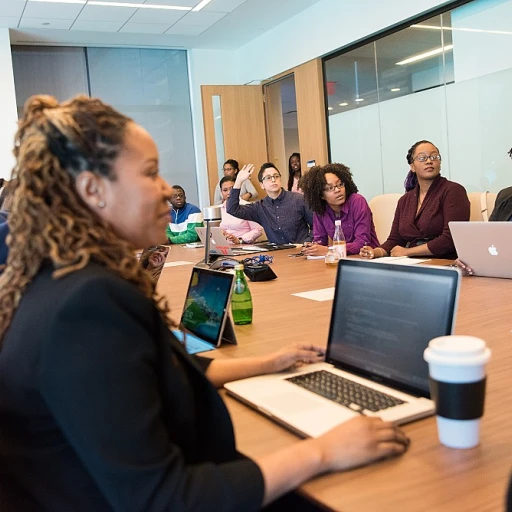
The Role of References in Recruitment
The Significance of Employment References
References have long been an integral part of the recruitment process, playing a vital role in determining a candidate's suitability for a job. The practice of seeking references allows employers and hiring managers to validate the information presented during interviews and ensure a candidate's work ethic aligns with the company's expectations. References can offer insights into a candidate's previous work experience, capabilities, and potential for success in a new role. For staffing agencies, reference checks are especially crucial, serving as a tool to distinguish between candidates who might seem similar on paper. By contacting a candidate's previous employers or colleagues, recruiters gather essential information that may not be evident from resumes or cover letters alone. This information can be the root of informed hiring decisions that benefit both the employer and the candidate. The recruitment landscape is continuously evolving, yet references remain a constant element, much like the role of the job interview. With employment checks becoming increasingly sophisticated, references provide a personalized perspective that data alone can't capture. This is where the reference checking process emerges as a bridge, connecting the quantitative and qualitative aspects of hiring. References not only corroborate a candidate's history and skills but also help address any concerns or questions that may arise during the recruitment process. Understanding the importance of references, both candidates and recruiting agencies can navigate the hiring landscape more effectively. When providing references, candidates should be prepared to offer contacts who can attest to their performance, reliability, and potential for growth. The insights gained from these references can significantly influence hiring decisions, impacting the overall candidate experience. For more in-depth information on understanding employee rights during HR-related processes, this resource provides valuable insights.How References Impact Candidate Experience
Influence of References on the Overall Process
In the recruitment process, references are pivotal. When a job candidate is finalizing stages of an interview, hiring managers often utilize reference checks as a means to ascertain the candidate's suitability for the role. The insights gathered from a candidate's previous employment through references can offer a window into their work ethic, problem-solving skills, and how they perform in a team setting.Impact on Candidate's Job Search Journey
For many candidates, the mere mention of reference checks can be a point of anxiety. Wondering whether past employment interactions will reflect positively or if the recruitment agency will contact references promptly can be stressful. Some candidates might feel overwhelmed, particularly if the timing doesn’t align — say in June, when previous employers could be on holiday, complicating the checks.Reference Check and Candidate Experience
Reference checks, while essential, could create bottlenecks or confusion if not managed correctly. When staffing agencies or recruiting agencies delay the process or deviate from transparent communication, candidates might feel in the dark and uneasy. It is important that candidates are informed about what questions will be posed and to whom, and appreciate a recruitment process that respects their privacy policy. Furthermore, an inefficient process can lead candidates to wonder about potential red flags in reference checking protocols. For insights into these potential issues, explore this blog. Ultimately, the candidate experience is deeply tied to the recruitment process's efficiency and transparency. Candidates appreciate when recruitment agencies streamline reference checks, provide clear expectations, and maintain privacy. As reference checks remain a critical stage in hiring, an approach that prioritizes clarity, respect, and efficiency can transform a potentially stressful part of job searching into an affirming stepping stone toward employment.Best Practices for Candidates When Providing References
Best Practices for Candidates When Providing References
Navigating the job search can be daunting, especially when it comes to providing employment references. It's crucial for candidates to be strategic and thoughtful in this aspect of the recruitment process, as references play an essential role in shaping perceptions about a candidate's work ethic and experience. Firstly, when asked to provide references, candidates should ensure they have a list of contacts ready who can vouch for their skills and reliability. Ideally, these should include previous employers, supervisors, or colleagues who are familiar with your professional accomplishments and work characteristics. It's important that these references are not only willing to speak on your behalf but also aware of the position you are applying for, which allows them to tailor their remarks during the reference check process. To maintain a good relationship, it's advisable to inform your references before submitting their names. This courtesy gives them a chance to prepare for the potential call or email from the recruiting agency, hiring managers, or staffing agency. Let them know which skills or projects might be relevant to highlight in relation to the new job role. Moreover, providing them with a copy of your resume can help them connect previous achievements to your current job application. Privacy is another key consideration. Be mindful of the privacy policy of both the recruitment agency and your references. Ensure you've obtained explicit permission to share their contact details and inform them how this information will be used in the recruitment process. Finally, maintaining professionalism throughout the reference-checking phase is vital. Following up with a thank-you note to each reference after they've been contacted shows appreciation and keeps professional relationships strong, which could be beneficial for future job searches. For more insights on improving the candidate experience during different stages of the recruitment process, visit this resource.Recruitment Agency Perspective on References
The Recruitment Agency's View on References
Recruitment agencies play a critical role in the job search and hiring process. They are often tasked with the dual responsibility of matching candidates with suitable roles and ensuring that the applicants they forward for employment are thoroughly vetted. References are a cornerstone of this vetting process. From the perspective of staffing agencies, references provide an essential layer of validation for a candidate's previous work performance and professional conduct. Agencies understand that hiring managers rely on references to verify a candidate's claims and gauge intangible factors like work ethic and interpersonal skills. Reference checks often involve direct communication with the candidate's past employers or colleagues to ask targeted questions about their performance and character. Agencies must navigate the sensitive nature of reference checking, balancing thorough vetting with the candidate's privacy. Most recruitment firms will have a privacy policy in place to ensure that candidates' information is used appropriately and that consent is obtained before making any contact with the candidate's employment references. This is essential given the delicate balance between thorough candidate assessment and respecting their privacy. Moreover, staffing agencies must be mindful of the potential for bias or unfairness in the reference checking process. Not all references will provide objective feedback, and some may have their own agendas or biases that can skew their perspective. Agencies must weigh these factors carefully to present a balanced view to employers. In summary, for staffing agencies, references are a vital part of the recruitment process, ensuring that they recommend candidates who meet the employment expectations of their clients. This diligence helps foster trust between the agency, candidates, and potential employers, ultimately enhancing the overall candidate experience during the recruitment journey.Challenges Candidates Face with Reference Requests
Challenges Candidates Face with Reference Requests
For many candidates, the process of providing references during a job search can be fraught with challenges. While references are an essential component of the recruitment process, they can also present obstacles that impact a candidate's experience negatively.
One of the primary challenges is the privacy concerns that arise when candidates are asked to provide contact details of previous employers or colleagues. Many individuals are understandably cautious about sharing personal information, especially when the privacy policy of the recruiting agency is unclear. This can lead to hesitancy and discomfort, potentially affecting the candidate's confidence during the interview process.
Another issue is the availability and willingness of references. Candidates may find it difficult to reach out to former employers or colleagues, particularly if they have moved on to new jobs or if there were unresolved issues at their previous place of employment. This can be especially challenging for those who have been out of work for an extended period or who have worked in environments with high turnover rates.
Moreover, candidates often face the burden of managing multiple reference checks. In some cases, staffing agencies or hiring managers may request references at different stages of the recruitment process, requiring candidates to repeatedly contact and coordinate with their references. This can be time-consuming and stressful, especially when candidates are juggling multiple job applications.
Additionally, there is the risk of negative feedback from references. While most candidates hope their references will provide positive insights into their work ethic and capabilities, there is always the possibility of unfavorable comments, which can be a root cause of anxiety during the recruitment process.
To address these challenges, candidates should be proactive in preparing their references ahead of time. By maintaining good relationships with previous employers and colleagues, candidates can ensure they have reliable references who are willing to vouch for their skills and experience. Understanding the essential role of references in the recruitment process and communicating openly with potential employers about any concerns can also help mitigate these challenges.
Improving Candidate Experience in Reference Checks
Enhancing the Reference Process for a Better Candidate Experience
Improving the candidate experience in recruitment, particularly in reference checks, is essential for building trust and encouraging successful job placement. Here are some actionable strategies:- Transparency: Providing clear information on why references are necessary and how they will be used in the hiring process can significantly ease candidate concerns. Knowing the purpose behind reference checks can make candidates feel more comfortable during this phase of recruitment.
- Streamlined Communication: Open and honest communication is critical. When recruiting agencies or hiring managers contact candidates for references, they should articulate the next steps and expected timelines. This helps manage expectations and reduces anxiety during the job search.
- Privacy Assurance: Respecting the candidate's privacy by adhering to established privacy policies is vital. Staffing agencies and hiring managers should ensure that personal data, including references, is handled securely to maintain trust.
- Feedback and Clarity: Offering feedback after reference checks can enhance the candidate experience. Clear communication regarding the outcomes of reference checks, even if the result isn't favorable, can provide candidates with valuable insights for future job opportunities.













